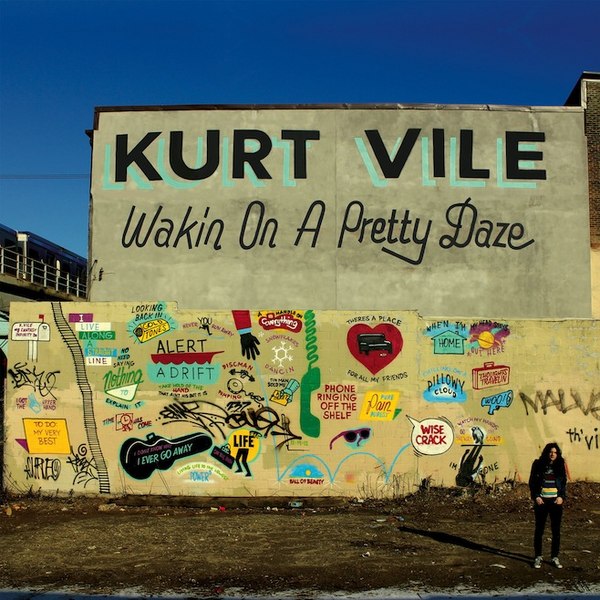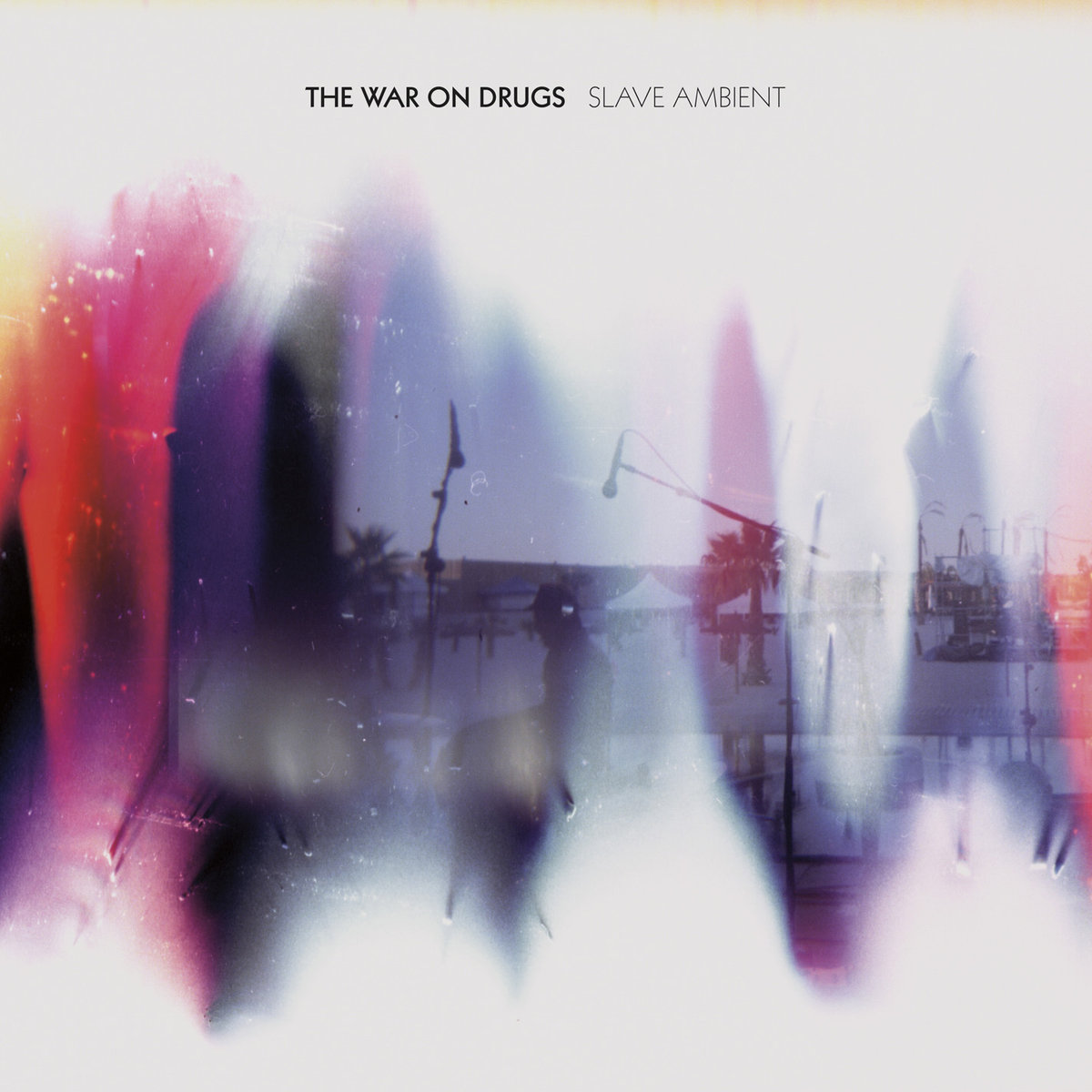Kurt Vile : Wakin On a Pretty Daze

It took Kurt Vile himself to perfectly encapsulate the style of music he plays in a snappy, two-word phrase: “pretty daze.” Vile, a one-time member of Philadelphia’s The War on Drugs and charmingly atypical rock frontman, often finds himself caught between gritty, guitar-based rock ‘n’ roll and soft, sweetly drifting dream pop. It’s lush, affecting stuff, but has a muscle about it that keeps it grounded. Vile’s music doesn’t exist halfway between Springsteen and Slowdive, but it’s still somewhere along the spectrum.
Yet Vile, as a narrator, tends to get caught up in a daze of his own. He’s prone to shining a light on his own vulnerabilities and insecurities, even though it sometimes feels like he’s working through them in real time. In a song like “Baby’s Arms,” from 2011’s Smoke Ring for My Halo, Vile draws comfort from the warmth of another, but expresses his feelings in quirky asides: “I get sick of just about everyone… ‘cause, except for her, you know, as I’ve implied.” And even in his most sublime moments, he sometimes trails off (“Hey wait, where was I?/ Well, I am trying”). Lest anyone get the wrong idea about the Philly singer-songwriter, on “Goldtone,” the 10-minute closing track from his fifth album, Wakin on a Pretty Daze, Vile sets the record straight: “Sometimes when I get in my zone/ You’d think I was stoned/ But I never, as they say, touch the stuff.”
On Wakin On a Pretty Daze, Vile is definitely in his zone, blissing out on some of the prettiest, yet longest songs he’s ever written. The title(ish) track, “Wakin’ on a Pretty Day,” concludes at a whopping nine and a half minutes—and that’s just the first song. But for a tune so expansive, it’s surprisingly focused, slowly unfolding with shimmering guitar leads and Vile’s characteristic meditations (“You could say I been most all around/ But honey, I ain’t goin’ nowhere”). Around each corner, there’s a new climax to take it to a new level, from its hypnotic guitar solo at 3:30, to the breakdown a minute later, in which the pace picks up slightly, and Vile pulls out a riff that, though only slightly faster or louder than the four and a half minutes that precede it, seemingly rocks with three times the urgency.
Wakin On a Pretty Daze, on the whole, reflects that sense of urgency, as counterintuitive as it may sound for an album nearly twice as long as its predecessor. It’s epic, certainly, but it has a steady momentum behind it, driving rockers like the fiery “KV Crimes” or the hypnotically pulsing “Was All Talk.” And just as urgent are Vile’s intentions; on the former, he takes charge, declaring, “I think I’m ready/ to take what’s mine, rightfully, yeah.” And on the latter, his own personal trajectory mirrors that of the song, as he croons, “Watch ‘em go, watch me go/ Yeah I’m goin’… yeah I’m gone.” The song is nearly eight minutes long, of course, but he could just keep on going, stringing the listener along, and it would be no less sublime.
Sprawling as the album may be, some of Daze’s best songs are incredibly direct. “Never Run Away” is one such track, a straightforward three-chord love song that’s almost as disarming in its melody as it is in its sentiment. Vile doesn’t shy away from the sap, but he delivers it with in a laid-back slacker charm that only he could pull off (“I’m livin’ all the time/ thanks, cuz you’re mine/ you turn my dyin’ days away”). Feel-bad anthem “Shame Chamber” is likewise one of the catchiest tunes here, celebrating “livin’ life to the lowest power” via rich Rhodes grooves and some exclamatory “woos!” to carry it out. And “Snowflakes Are Dancing” just straight-up rocks; it’s a trick Vile uses sparingly, but anytime he lets loose he pulls off something amazing.
Kurt Vile has gotten comfortable within his pretty daze, but he’s also grown bolder and more confident inside of it. His songs have grown bigger in every way, but they also contain an even greater number of individual, outstanding moments worth savoring — the synth outro on “Air Bud,” the waltz breakdown in “Pure Pain,” the noisy second chorus in “Girl Called Alex,” et al. That he’s attempted an album even more ambitious and epic than any of his prior efforts is a testament to his growth as a songwriter. That it ends up being his best album to date speaks to the magnitude of it.
Label: Matador
Year: 2013
Similar Albums:
Jeff Terich is the founder and editor of Treble. He's been writing about music for 20 years and has been published at American Songwriter, Bandcamp Daily, Reverb, Spin, Stereogum, uDiscoverMusic, VinylMePlease and some others that he's forgetting right now. He's still not tired of it.




